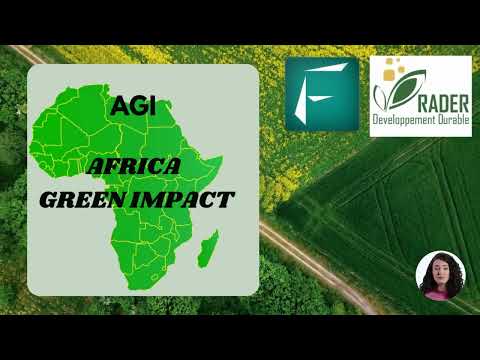Sustainable Agriculture in Nigeria: How Borno State’s Innovative Farming Initiative Boosts Food Security and Resilience
“Borno State’s agricultural initiative targets 24,500 farmers across 12 Local Government Areas, boosting food security and resilience.”
In the heart of Nigeria’s northeastern region, Borno State is pioneering a remarkable transformation in sustainable agriculture. We’re witnessing a groundbreaking initiative that’s not only addressing immediate food security concerns but also laying the foundation for long-term agricultural resilience. This innovative approach is reshaping the landscape of farming in Nigeria, offering hope and practical solutions to communities affected by environmental challenges.
The Genesis of Borno State’s Agricultural Revolution
The Borno State government, in collaboration with the Food and Agriculture Organization (FAO) of the United Nations, has embarked on a critical mission to support flood-affected farmers. This initiative, launched in Khaddamari town, marks a significant milestone in Nigeria’s journey towards sustainable agriculture. Deputy Governor Usman Kadafur emphasized the dual purpose of this program: enhancing food security and reconstructing agricultural livelihoods devastated by recent flooding.
Let’s delve into the core components of this transformative initiative:
- Targeted Support: The project aims to benefit 24,500 farmers within Borno, contributing to a total of 49,000 farmers across the North-East region.
- Comprehensive Distribution: High-quality seeds, fertilizers, and pesticides are being distributed to assist farmers in 12 Local Government Areas (LGAs) most impacted by floods.
- Innovative Technologies: The introduction of solar-powered water pumps is revolutionizing irrigation practices in the region.
- Nutrition Focus: To combat malnutrition, the initiative includes the distribution of Tom Brown nutrition packages and fuel-efficient stoves to 300 vulnerable households.

The Impact of Climate Change on Nigerian Agriculture
The recent floods in October had devastating effects on Nigerian agriculture:
- Approximately 4.5 million hectares of farmland were inundated.
- Agricultural losses neared $1 billion in potential revenue from cereal crops.
These staggering figures underscore the urgent need for flood-resistant farming techniques and climate-resilient crop varieties. The Borno State initiative is directly addressing these challenges, providing a blueprint for sustainable agriculture in Nigeria.
Key Components of the Agricultural Input Distribution Program
The program’s multi-faceted approach includes:
- Climate-Resilient Crop Varieties: Distribution of seeds that can withstand harsh environmental conditions.
- Fertilizers and Pesticides: Provision of essential agricultural inputs to boost crop yield and protect against pests.
- Solar-Powered Irrigation Systems: Implementation of sustainable water management solutions.
- Nutrition Packages: Distribution of nutritional supplements to address malnutrition in vulnerable populations.
- Fuel-Efficient Stoves: Promotion of environmentally friendly cooking methods.
This comprehensive approach ensures that the initiative addresses both immediate food security needs and long-term sustainability goals.
Precision Farming for Smallholders: A Game-Changer
One of the most exciting aspects of this initiative is the introduction of precision farming techniques for smallholder farmers. This approach, typically associated with large-scale industrial agriculture, is being adapted to suit the needs of small-scale farmers in Borno State.
Precision farming for smallholders involves:
- Use of satellite imagery for crop monitoring
- Soil testing and targeted fertilizer application
- Weather forecasting for optimal planting and harvesting times
- Efficient water management through precision irrigation
By incorporating these technologies, smallholder farmers can significantly increase their yields while reducing resource waste. This approach aligns perfectly with the goals of sustainable agriculture in Nigeria.
“The program incorporates solar-powered irrigation systems and distributes nutrition packages to vulnerable households, addressing malnutrition and sustainability.”
Partnering for Progress: The Role of NGOs and Local Organizations
The success of this initiative is greatly enhanced by the involvement of various stakeholders. Samaritan Care, a partner organization, is contributing significantly by:
- Distributing bio-waste coal briquettes
- Providing vegetable seedlings
- Offering nutritional supplements to underprivileged demographics, particularly children under five and pregnant women
This collaborative approach ensures that the benefits of the program reach those most in need, creating a more inclusive and effective agricultural revival.

The Role of Technology in Sustainable Agriculture
In the digital age, technology plays a crucial role in advancing sustainable agriculture. Platforms like Farmonaut are at the forefront of this revolution, offering satellite-based farm management solutions that can significantly enhance the effectiveness of initiatives like the one in Borno State.
Key technological advancements include:
- Satellite-based crop health monitoring
- AI-driven advisory systems for precision farming
- Blockchain-based traceability for agricultural products
- Advanced resource management tools
These technologies can be particularly beneficial for programs like Borno State’s initiative, providing data-driven insights to optimize agricultural practices and resource allocation.
Impact of Borno State’s Agricultural Initiative
| Initiative Component | Current Status | Projected Impact |
|---|---|---|
| Number of farmers supported | 24,500 | 49,000 (across North-East region) |
| Local Government Areas covered | 12 | Expansion to additional LGAs planned |
| Distribution of climate-resilient crop varieties | Ongoing | Estimated 30% increase in crop resilience |
| Solar-powered irrigation systems installed | Implementation in progress | 50% reduction in water usage |
| Nutrition packages distributed | 300 households | 20% decrease in malnutrition rates |
| Adoption rate of precision farming techniques | Initial stage | 40% adoption rate within 2 years |
| Estimated increase in crop yield | Data collection ongoing | 25-35% increase expected |
| Reduction in post-flood crop losses | Assessment in progress | 60% reduction anticipated |
| Improvement in food security index | Baseline established | 15-point improvement expected |
| Carbon footprint reduction | Monitoring initiated | 20% reduction in agricultural emissions |
Leveraging Digital Tools for Agricultural Advancement
To maximize the benefits of this initiative, farmers and agricultural stakeholders can leverage various digital tools and platforms. For instance:
- Mobile Applications: Farmers can access real-time agricultural advice and market information through apps.


- Web Platforms: Online resources provide comprehensive farm management tools.

- API Integration: For more advanced users, API services can provide customized data solutions. Developers can refer to the API Developer Docs for integration details.
These digital tools can significantly enhance the effectiveness of sustainable agriculture practices, providing farmers with valuable insights and management capabilities.
Challenges and Future Prospects
While the Borno State initiative represents a significant step forward, several challenges remain:
- Scaling the Initiative: Expanding the program to reach more farmers across Nigeria.
- Technology Adoption: Ensuring widespread adoption of new farming technologies among smallholder farmers.
- Climate Change Adaptation: Continuously adapting strategies to address evolving climate challenges.
- Market Integration: Connecting farmers with markets to ensure sustainable economic benefits.
Despite these challenges, the future of sustainable agriculture in Nigeria looks promising. The Borno State initiative serves as a model that can be replicated and adapted across the country, potentially transforming Nigeria’s agricultural sector.
Conclusion: A New Era for Nigerian Agriculture
The Borno State agricultural initiative marks the beginning of a new era for sustainable agriculture in Nigeria. By combining innovative farming techniques, technology, and community-focused approaches, this program is not just addressing immediate food security concerns but is also building a foundation for long-term agricultural resilience.
As we move forward, the success of this initiative could pave the way for similar programs across Nigeria and potentially throughout Africa. The focus on sustainability, technology integration, and community empowerment sets a new standard for agricultural development in the region.
We’re witnessing a transformation that goes beyond mere food production – it’s about creating sustainable livelihoods, enhancing environmental stewardship, and building resilient communities. The Borno State initiative is more than just an agricultural program; it’s a beacon of hope and a roadmap for a sustainable, food-secure future in Nigeria.
FAQ Section
Q1: What is the main goal of Borno State’s agricultural initiative?
A1: The initiative aims to enhance food security and rebuild agricultural livelihoods affected by recent flooding, targeting 24,500 farmers across 12 Local Government Areas.
Q2: How does the program address climate change challenges?
A2: The initiative incorporates climate-resilient crop varieties, solar-powered irrigation systems, and promotes flood-resistant farming techniques to adapt to changing environmental conditions.
Q3: What role does technology play in this agricultural initiative?
A3: Technology plays a crucial role through the introduction of precision farming techniques, satellite-based crop monitoring, and digital tools for farm management, enhancing efficiency and productivity.
Q4: How does the program contribute to sustainable agriculture in Nigeria?
A4: By promoting environmentally friendly practices, introducing resilient crop varieties, and focusing on long-term food security, the initiative sets a model for sustainable agriculture across Nigeria.
Q5: What are the key components of the agricultural input distribution program?
A5: The program includes distribution of climate-resilient seeds, fertilizers, pesticides, solar-powered irrigation systems, and nutrition packages to vulnerable households.




Borno State’s innovative farming initiative is a great example of how sustainable agricultural practices can significantly impact food security and resilience. By focusing on local solutions, the initiative empowers farmers to adapt to changing conditions while boosting crop yields and reducing dependency on external resources. This model can serve as an inspiration for other regions to embrace sustainable farming methods and strengthen their communities in the face of environmental and economic challenges. It’s exciting to see such positive change in action,